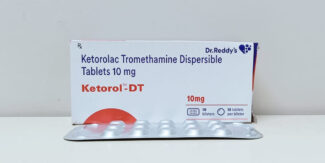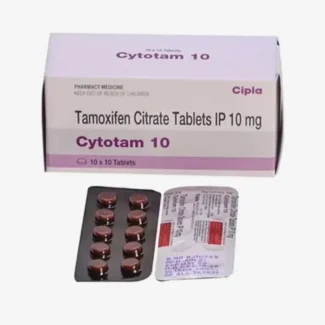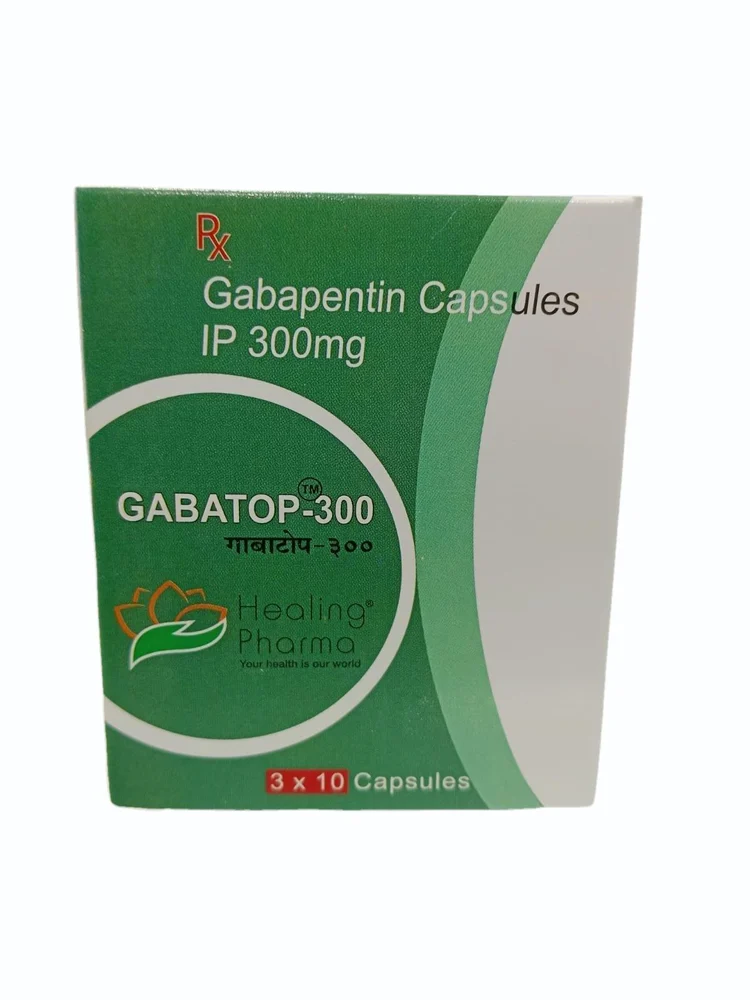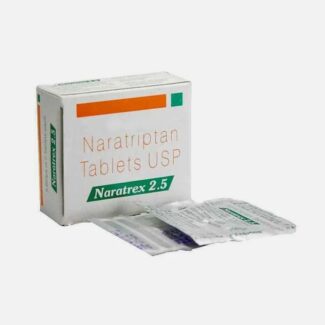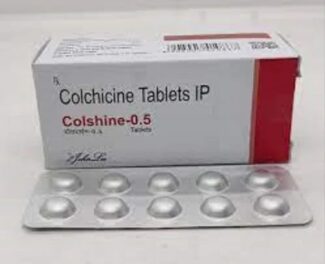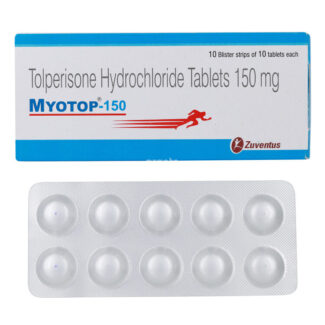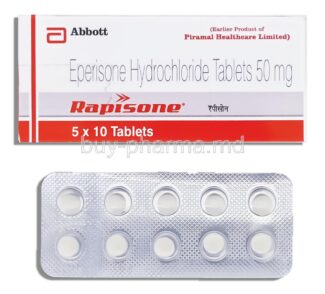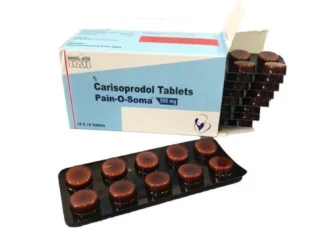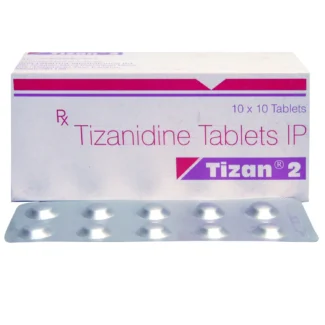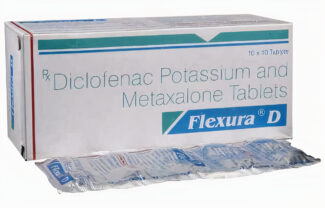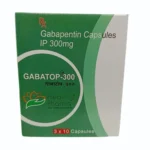Gabatop 300 Capsule (Gabapentin 300mg)
Gabatop 300 Capsule (Gabapentin 300mg) is a versatile medication designed to alleviate pain resulting from nerve damage, known as neuropathic pain, which can stem from a variety of conditions including diabetes, shingles, and spinal cord injuries. Furthermore, this capsule is an effective adjunctive therapy for managing certain types of seizures in epilepsy. It belongs to the anti-epileptic group of medicines, promising relief by diminishing abnormal brain activity and interfering with pain signals. Consistent usage as prescribed by your doctor will ensure optimal benefits.
Uses of Gabatop 300 Capsule (Gabapentin 300mg)
- Treatment of Neuropathic Pain
- Treatment of Epilepsy/Seizures
- Treatment of Diabetic Neuropathy
- Treatment of Post-Herpetic Neuralgia
- Treatment of Spinal Cord Injury-Related Nerve Pain
- Treatment of Neuropathic Pain. Gabatop 300 Capsule (Gabapentin 300mg) aids in long-lasting pain relief caused by nerve damage due to diabetes, shingles, or spinal cord injury.
- Treatment of Epilepsy/Seizures. This medication can be used alongside other medicines to manage partial seizures by slowing down the nerve impulses that cause seizures.
- Treatment of Diabetic Neuropathy. Gabatop 300 Capsule (Gabapentin 300mg) is effective in reducing pain and improving the quality of life in individuals suffering from nerve damage caused by diabetes.
- Treatment of Post-Herpetic Neuralgia. It helps to alleviate the chronic pain that lingers after a shingles infection has resolved.
- Treatment of Spinal Cord Injury-Related Nerve Pain. It provides relief from nerve pain resulting from spinal cord injuries, significantly enhancing the patient’s comfort and functionality.
Safety & Precautions
- Avoid drinking alcohol while taking this medicine as it can cause excessive drowsiness and dizziness.
- Inform your doctor if you have any kidney-related issues before starting this medication.
- Elderly patients (65 years and older) may need a different dose.
- Consult your doctor if you are pregnant, breastfeeding, or planning to conceive.
- Do not discontinue the medication abruptly without consulting your doctor.
- Be cautious while engaging in activities that require alertness, such as driving.
- Report any unusual mood changes like anxiety, depression, or thoughts of self-harm to a doctor immediately.
- Take the medication at the same time each day to obtain the best results.
- Do not miss any doses, as it may worsen your condition.
- Store below 30°C and keep out of reach from children.
Side Effects
Most side effects do not require any medical attention and disappear as your body adjusts to the medicine. Consult your doctor if they persist or if you’re worried about them.
- Viral infection
- Sleepiness
- Dizziness
- Impaired coordination
- Fatigue
- Fever
- Mood changes
- Uncontrollable shaking
- Blurred vision
- Increased appetite
- Swelling of hands and feet
- Difficulty speaking
- Weight gain
- Nausea and vomiting
- Memory problems
FAQ
Can I take Gabatop 300 Capsule (Gabapentin 300mg) during pregnancy?
While there is limited data on the effects of Gabatop 300 Capsule (Gabapentin 300mg) during pregnancy, animal studies suggest potential risks to the developing baby. It’s essential to consult your doctor before starting this medication if you are pregnant or planning to become pregnant. Your doctor will weigh the benefits and potential risks to make the best decision for your situation.
Is it safe to drink alcohol while taking Gabatop 300 Capsule (Gabapentin 300mg)?
No, it is not advisable to consume alcohol while taking Gabatop 300 Capsule (Gabapentin 300mg). Alcohol can enhance the side effects of the medication, leading to excessive drowsiness and dizziness. Combining alcohol with this medication can impair your ability to perform tasks that require alertness, such as driving or operating machinery.
How should I take Gabatop 300 Capsule (Gabapentin 300mg)?
Take Gabatop 300 Capsule (Gabapentin 300mg) as prescribed by your doctor. It can be taken with or without food, but it is vital to take it at the same time each day to maximize its efficacy. Do not miss any doses, as it may worsen your condition. Follow your doctor’s instructions regarding the dosage and duration of treatment.
What should I do if I miss a dose of Gabatop 300 Capsule (Gabapentin 300mg)?
If you miss a dose of Gabatop 300 Capsule (Gabapentin 300mg), take it as soon as you remember. However, if it is close to the time for your next dose, skip the missed dose and continue with your regular schedule. Do not take two doses at once to make up for a missed one, as this can increase the risk of side effects.
Can I stop taking Gabatop 300 Capsule (Gabapentin 300mg) if I feel better?
No, you should not stop taking Gabatop 300 Capsule (Gabapentin 300mg) without consulting your doctor, even if you feel better. Discontinuing the medication abruptly can cause your condition to worsen or trigger seizures. Your doctor will guide you on how to gradually reduce the dosage if it is necessary to stop the medication.
What should I do if I experience any unusual side effects while taking Gabatop 300 Capsule (Gabapentin 300mg)?
If you experience any unusual side effects such as mood changes, anxiety, depression, or thoughts of self-harm, contact your doctor immediately. Most side effects are mild and go away as your body adjusts to the medication. However, it is essential to seek medical advice if the side effects persist or become bothersome.
Additional Information
Uses of Gabapentin
Gabapentin is widely prescribed for several medical conditions, primarily to alleviate nerve pain and treat partial seizures. Here are the primary uses of Gabapentin:
- Postherpetic Neuralgia (nerve pain following shingles)
- Partial Seizures (with or without secondary generalization)
- Restless Legs Syndrome (RLS)
- Neuropathic Pain
- Migraine Prophylaxis
Brand Names
Gabapentin is marketed under several brand names, each varying slightly in their formulation and use:
- Neurontin
- Gralise
| Brand Name | Formulation |
|---|---|
| Neurontin | Immediate Release |
| Gralise | Extended Release |
Gabapentin Dosages
Gabapentin dosage varies significantly based on the condition being treated, the patient’s age, and renal function. Here are common dosages:
Adult and Pediatric Dosages
| Dosage Form | Strength |
|---|---|
| Capsule | 100 mg, 300 mg, 400 mg |
| Tablet | 300 mg (Gralise), 600 mg (Gralise, Neurontin), 800 mg (Neurontin) |
Dosage Considerations
Gabapentin dosing necessitates careful consideration, especially regarding gradual dose adjustment:
- Reducing the dose, discontinuing the drug, or substituting an alternative medication should be done gradually over a minimum of 1 week or longer.
- For geriatric patients with renal impairment, gabapentin dose reduction may be required based on renal function.
Partial Seizures (Neurontin)
For adults experiencing partial seizures, the dosage is carefully titrated:
- Initial: 300 mg orally every 8 hours.
- May increase up to 600 mg orally every 8 hours; up to 2400 mg/day.
- Doses up to 3600 mg have been administered for short durations.
Postherpetic Neuralgia (Neurontin and Gralise)
Gabapentin is often used to relieve the pain associated with postherpetic neuralgia:
- Day 1: 300 mg orally once per day.
- Day 2: 300 mg orally every 12 hours.
- Day 3: 300 mg orally every 8 hours.
- Maintenance: Titrate up to 600 mg orally every 8 hours as needed.
- Gralise: Dose gradually to 1800 mg/day.
Dosing Modifications: Renal Impairment (Neurontin & Gralise)
| Creatinine Clearance | Neurontin Dosage | Gralise Dosage |
|---|---|---|
| Greater than 60 mL/min | 300-1200 mg orally twice daily | 1800 mg daily with evening meal |
| 30-60 mL/min | 200-700 mg every 12 hours | 600-1800 mg daily with evening meal |
| 15-29 mL/min | 200-700 mg once per day | Do not administer |
| Less than 15 mL/min | 100-300 mg once per day | Do not administer |
Potential Drug Interactions
Gabapentin can interact with various medications, potentially causing reduced efficacy or increased side effects:
Serious Interactions
Gabapentin has serious interactions with:
- Hydrocodone
- Valerian
Moderate Interactions
Moderate interactions include:
- Aluminum hydroxide
- Calcium carbonate
- Clobazam
- Lurasidone
- Morphine
- Orlistat
- Sevelamer
- Sodium bicarbonate
- Sodium citrate/citric acid
Check with your physician for more details and updates regarding potential interactions.
Side Effects Associated with Using Gabapentin
Common side effects include:
- Lack of muscle coordination
- Dizziness
- Drowsiness
- Fatigue
- Sleep for unusually long periods
- Double vision
- Repetitive eye movement
- Tremor
- Reduced vision
- Back pain
- Constipation
- Depression
- Dry mouth
- Slurring of speech
- Hostility
- Muscle spasm
- Increased appetite
- Reduction of white blood cells
- Muscle pain
- Nervousness
- Swelling caused by fluid (angioedema)
Renal Impairment Considerations
For patients with renal impairment, caution is essential when prescribing and dosing Gabapentin:
- Assess renal function through creatinine clearance tests before starting treatment.
- Adjust doses accordingly to prevent toxicity.
Monitoring and Patient Education
Patients on Gabapentin should undergo regular medical reviews to monitor efficacy, safety, and signs of adverse reactions or interactions. Education on proper usage, potential side effects, and the importance of adherence to prescribed dosing regimens can enhance treatment success and minimize risks.
Conclusion
Gabapentin, marketed under brand names such as Neurontin and Gralise, is a versatile medication used to treat various conditions ranging from nerve pain to seizures. Proper dosing, understanding potential drug interactions, and recognizing side effects play a pivotal role in optimizing its therapeutic benefits while minimizing risks. Consult healthcare providers regularly to ensure safe and effective use of Gabapentin, with adjustments as necessary based on individual clinical responses and renal function.

